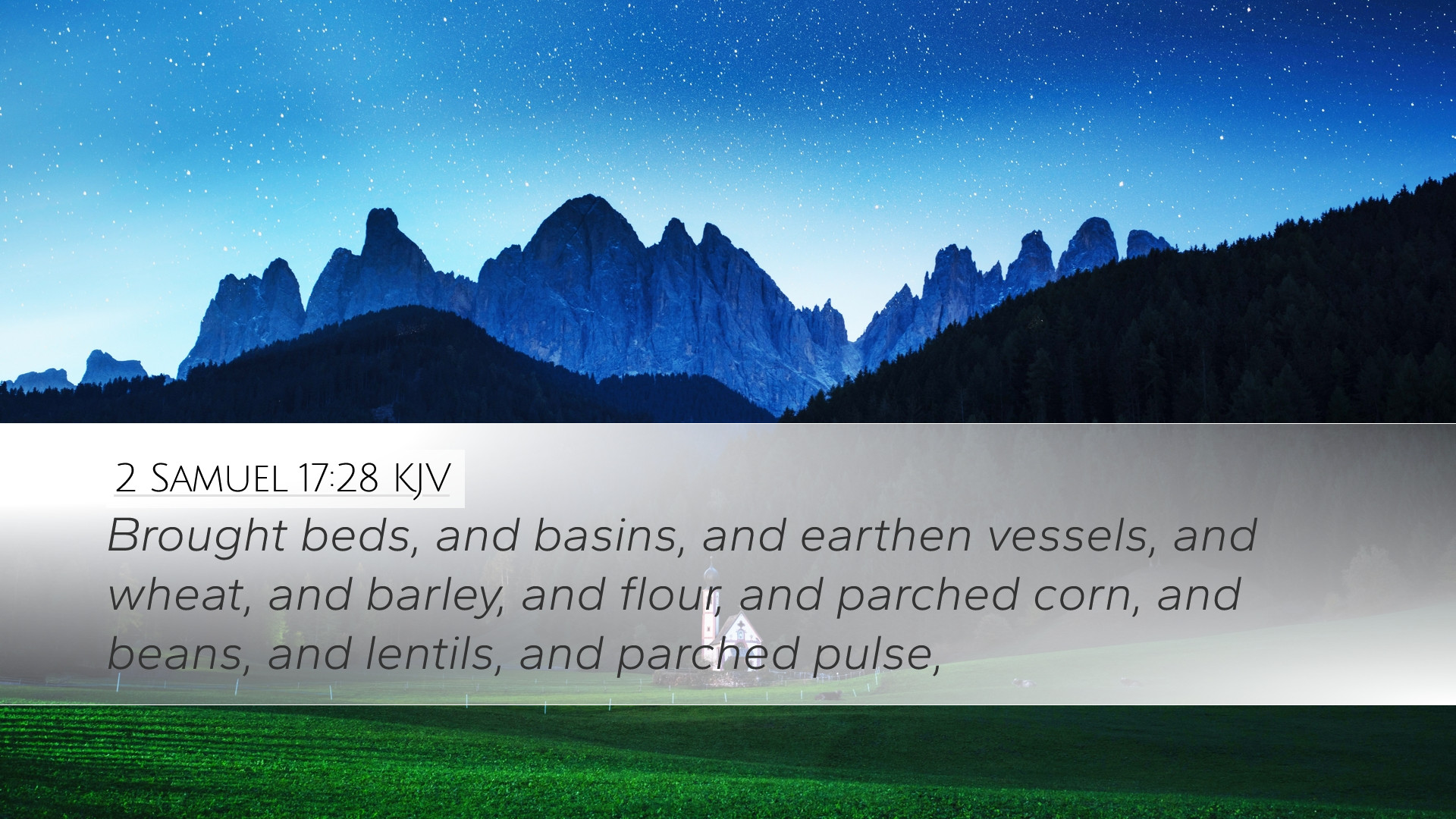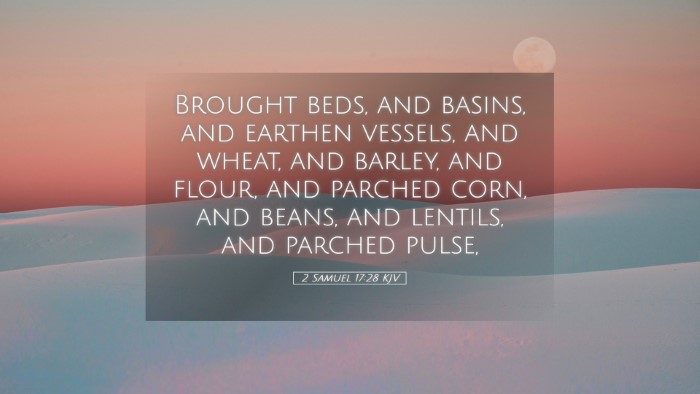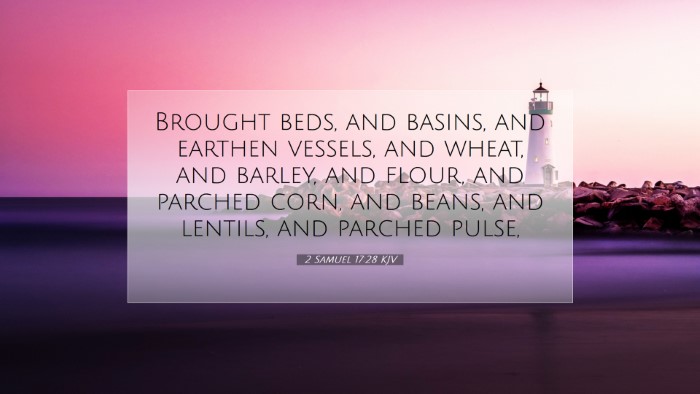Commentary on 2 Samuel 17:28
2 Samuel 17:28 reads: “Brought beds, and basins, and earthen vessels, and wheat, and barley, and flour, and parched corn, and beans, and lentils, and parched pulse.” This verse captures a moment of provision and care amid turmoil, showcasing the richness of God's grace and the importance of hospitality in dire times.
Contextual Analysis
This verse occurs during Absalom's rebellion against David. It follows David's fleeing from Jerusalem and reflects the complexities of loyalty, family, and divine providence that permeate the narrative.
Historical Background
Absalom’s revolt was a critical moment in the life of King David, testing his leadership and faith. Commentators like Matthew Henry emphasize that this crisis reveals both human frailty and divine sovereignty. In this context, the arrival of supplies is not merely about physical sustenance; it symbolizes God’s provision amid distress.
Significance of the Provisions Listed
The various items mentioned in the verse—beds, basins, vessels, grains, and pulses—carry deep metaphorical and practical implications:
- Beds: Symbolizing rest and refuge in times of struggle, the provision of beds signifies the need for peace and restoration.
- Basins and Earthen Vessels: These items represent everyday life and the basic needs of people. Their mention highlights the importance of being prepared to care for others.
- Wheat, Barley, and Flour: Staples of sustenance, these provisions point to God's ongoing care for physical needs even in the midst of spiritual warfare.
- Peas, Beans, and Lentils: These represent humility and the essential elements of diet, suggesting that God provides for every basic need, no matter how modest.
Theological Implications
The gathering of supplies for David and his followers is emblematic of God's unfailing provision. Albert Barnes notes that God’s care extends beyond mere spiritual sustenance; He also tends to the physical needs of His people. This aligns with New Testament themes where Jesus feeds the hungry, demonstrating the comprehensive nature of God's concern.
Hospitality as a Christian Virtue
This verse also showcases the importance of hospitality. The people who brought these provisions exemplified generosity and support during a time of need. Adam Clarke emphasizes that the act of providing for others is a key tenet of faith, mirroring the Christian call to “bear one another's burdens” (Galatians 6:2).
Dynamics of Relationships
The provision of these items amid a national crisis reflects the intricacies of relationships during turmoil. Matthew Henry points out that even in the face of betrayal and upheaval, there are individuals who remain loyal, eager to serve the anointed king. This dynamic can serve as a powerful lesson on fidelity and community amidst discord.
God’s Sovereignty and Provision
This episode reinforces the notion that God’s sovereignty works through the actions of others. The provisions were likely brought by loyal supporters of David, which indicates that God's hand works through giftedness and service. Albert Barnes argues that our human efforts can be seen as conduits of divine provision. This truth encourages believers to actively participate in theological hospitality and the nurturing of communities.
Practical Applications for Today's Church
As modern-day believers reflect on 2 Samuel 17:28, several applications emerge:
- Emphasis on Community Support: The church today is called to reflect a spirit of hospitality and active support for one another, especially during crises. This verse encourages congregations to become places of refuge.
- Valuing Physical Needs: Just as David's followers needed food and rest, churches should consider the holistic well-being of their members, recognizing that spiritual nourishment often goes hand-in-hand with physical care.
- Promoting Generosity: Believers are reminded of the importance of generosity, echoing Clarke's sentiment that acts of kindness can be profound acts of faith. Churches might explore ways to facilitate such acts in their communities.
- Trusting in Divine Provision: In times of uncertainty, this passage reassures believers of God's continual provision. Maintenance of faith amidst struggles is crucial, as evidenced by David's experience in flight.
Conclusion
The insights derived from 2 Samuel 17:28 encourage a deeper understanding of God's provision, the importance of hospitality, and the significance of community support during trials. As Matthew Henry, Albert Barnes, and Adam Clarke illuminate through their commentaries, this verse is a powerful reminder of God's unfailing care amidst the chaos of life.


